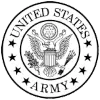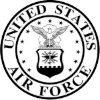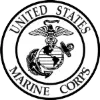Course Details
The Introduction to Containers, Kubernetes and Red Hat OpenShift (DO180) course is a 4-day course that is designed to teach students about building and managing Docker containers for deployment on a Kubernetes cluster. The course helps students to build core knowledge and skills in managing containers through hands-on experience with Docker, Kubernetes, and Red Hat OpenShift Container Platform. Kubernetes is a container orchestration platform that provides foundational services in Red Hat OpenShift Container Platform.
The class is based on Red Hat OpenShift Container Platform 3.9 and Red Hat Enterprise Linux 7.5.
Topics covered in the course include:
How to containerize simple software applications and services, deploy them with Docker, Kubernetes, and Red Hat OpenShift, test the containerized version, and troubleshoot issues with deployment.
Topics include:
- Container, Docker, and Red Hat OpenShift architecture
- Creating containerized services
- Managing containers and container Images
- Creating custom container images
- Deploying containerized applications on Red Hat OpenShift
- Deploying multi-container applications
Target Student:This course is designed for the following students:
- Developers wishing to containerize software applications
- Administrators new to container technology and container orchestration
- Architects considering using container technologies in software architectures
Prerequisites:
- An ability to use a Linux terminal session and issue operating system commands
- Have Red Hat Certified System Administrator (RHCSA) certification or equivalent experience
- Have experience with web application architectures and their corresponding technologies
Note: You can learn about the benefits of containers, Docker, Kubernetes, and Red Hat OpenShift with our free, technical overview course: Deploying Containerized Applications Technical Overview (DO080).
Course Outline
Course Introduction
- Introduce and review the course.
Get Started with Container Technology
- Describe how software can run in containers orchestrated by Red Hat OpenShift Container Platform.
Create Containerized Services
- Provision a server using container technology.
Manage Containers
- Manipulate pre-build container images to create and manage containerized services.
Manage Container Images
- Manage the life cycle of a container image from creation to deletion.
Create Custom Container Images
- Design and code a Docker file to build a custom container image.
Deploy Containerized Applications on Red Hat OpenShift
- Deploy single container applications on Red Hat OpenShift Container Platform.
Deploy Multi-Container Applications
- Deploy applications that are containerized using multiple container images.
Troubleshoot Containerized Applications
- Troubleshoot a containerized application deployed on Red Hat OpenShift.
Comprehensive Review of Introduction to Container, Kubernetes, and Red Hat OpenShift
- Demonstrate how to containerize a software application, test it with Docker, and deploy it on a Red Hat OpenShift cluster.
.
- Take our free assessment to gauge whether this offering is the best fit for your skills.
- Experience in the use of a Linux terminal session, issuing operating system commands, and familiarity with shell scripting. A Red Hat Certified"
1422,1535,,6505,IBM MQ V9 System Administration (using Windows for labs),0,0,IBM,ibm.png,,ibm,"
The IBM MQ V9 System Administration (using Windows for labs) course is a 4-day course that is designed to teach students the skills needed to administer IBM MQ queue managers on distributed operating systems and in the cloud. The course offers Instructor-led lectures and hands-on lab exercises designed to reinforce lecture content. The lab exercises use IBM MQ V9.0, providing students practical experience with tasks such as handling implementing security, queue recovery, and problem determination.
Topics covered in the course include:
- Describing the IBM MQ deployment options
- Planning for the implementation of IBM MQ on-premises or in the cloud
- Using IBM MQ commands and the IBM MQ Explorer for creating and managing queue managers, queues, and channels
- Using the IBM MQ sample programs and utilities to test the IBM MQ network
- Enabling a queue manager to exchange messages with another queue manager
- Configure client connections to a queue manager
- Use a trigger message and a trigger monitor to start an application to process messages
- Implement basic queue manager restart and recovery procedures
- Use IBM MQ troubleshooting tools to identifying the cause of a problem in the IBM MQ network
- Planning for and implement basic IBM MQ security features
- Using accounting and statistics messages to monitor the activities of an IBM MQ system
- Defining and administering a simple queue manager cluster
Target Student:
Technical professionals who need the skills t
Available 24/7
Professional Instruction
Free Training Materials






Testimonials
This was the class I needed.
The instructor Jeff took his time and made sure we understood each topic before moving to the next. He answered all of our questions, and I don't know about the rest of the students, but was very pleased with this experience.
I finally understand how to use Excel.
-Amanda T (Yale New Haven Hospital).
Great class!
We were able to cover a lot of information in one day without getting overwhelmed.
-Maria R (Microsoft).
Free Repeats
Learn At Your Pace
No Travel
Professional Instruction
Affordable Pricing
Group Discounts



